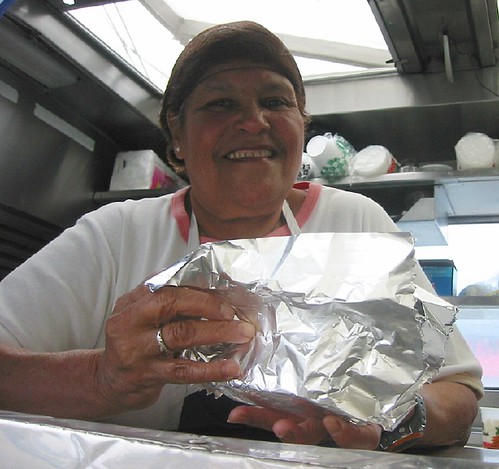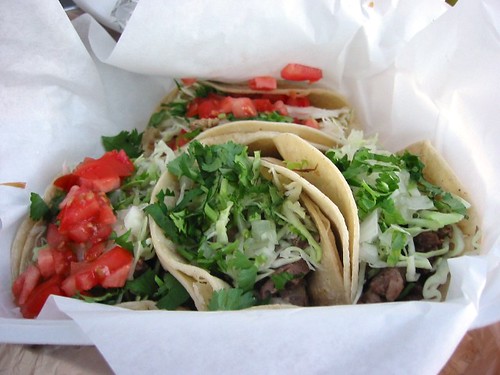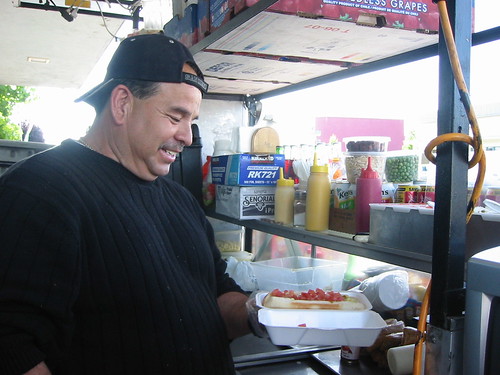I will be eternally grateful to the participants at Chowhound because they taught me, many years ago, to love taco trucks. I now seek out taco trucks wherever I go and some of the best tacos I have eaten have been off of these mobile trucks in many different cities. My mouth waters to think about the tacos at the El Novillo taco truck in Oakland's Fruitvale district followed by a licuado nuez -- a milkshake with walnuts -- from the Ojo de Agua truck nearby.
Over the years, I have come to appreciate the community that springs up around taco trucks in many towns. In some places, I will be the only "jueda" at the trucks -- surrounded by mainly Latino families or workers on lunch breaks. The workers and owners of the taco trucks are usually immigrants to the United States and seem to work very hard at their jobs. Cleanliness is always a question when I bring friends to taco trucks for the first time, and contrary to popular belief, taco trucks are inspected by the Health Department and are held to general health and safety standards. Is every taco truck I have gone to immaculate? No, but neither is every "brick and mortar" restaurant.
Citing safety and health concerns, along with cries of "unfair competition" from brick and mortar restaurants in the area, the City of Salinas is considering an outright ban on "mobile vendors" or a severe restriction on their business. In January, the city set a cap on the vendor permits at the current count of 31 and no new permits will be issued causing a gradual fade-out of taco trucks in Salinas. Next week, an as-of-yet unpublicized proposal is scheduled to go before the city council that will further restrict the taco trucks. The proposal could include possible time restrictions instructing taco trucks to only operate between 6 pm and 6 am, could require that the vendors move their trucks every 15 minutes to one hour, or could cause taco trucks to have to move off of public streets and on to private property zoned for the business.


